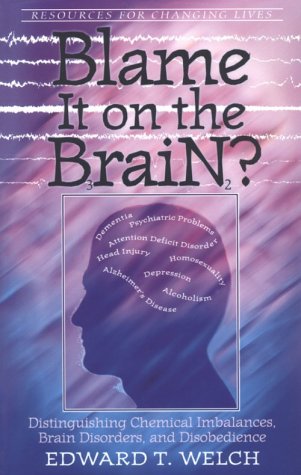Quotes about Mind
There is a grave danger in ritual familiarity with holy matters, even if you are not a professional. It is all too easy to go spiritually brain-dead when the prelude begins, to “say” prayers rather than pray them, to use the cadence of a confession as a rhythmic anesthetic, to mindlessly mouth the words of great hymns and gospel songs, to nod off during the sermon, to glibly mouth evangelical creeds – and then imagine that we’re really spiritual.
The Mystery of Unbelief Kent Hughes taken from Luke by Kent Hughes – Volume 1, copyright 1998, Crossway Books, a division of Good News Publishers, Wheaton Illinois 60187, www.crosswaybooks.org. Page 271.
It is not intelligence but intellectual pride that shuts people out of the kingdom. Intelligence is a gift of God, but when it is perverted by pride it becomes a barrier to God, because trust is in the gift rather than in the Giver.
Sanctification begins with spiritually renewing the mind, that is, changing how we think.
A God-centered worldview brings every issue, question, and cultural concern into submission to all that the Bible reveals, and frames all understanding within the ultimate purpose of bringing greater glory to God. This task of bringing every thought captive to Christ requires more than haphazard Christian thinking, and is to be understood as the task of the church and not merely the concern of individual believers. The recovery of the Christian mind and the development of a comprehensive Christian worldview will require the deepest theological reflection, the most consecrated application of scholarship, the most sensitive commitment to compassion, and the courage to face all questions without fear.
The Conviction to Lead, Bethany House Publishers, 2012, p. 45-46, Used by Permission.
Get this book!
Most human beings evidently do not like to think. At the very least, most seem quite satisfied never to think in a concerted, critical, and careful way. [They] never think strategically, consistently, or critically. They go from thought to thought without reflection, analysis, or questioning their own decisions. They operate at the basic level of thinking, and they think about the things that interest them, but they are not seriously interested in the process and quality of thought.
The Conviction to Lead, Bethany House Publishers, 2012, p. 59, Used by Permission.
Get this book!
No scriptural principles suggest that repeated emotional indulgence [of past trauma] produces healing. Rather, the opposite is suggested by the murderous outcome of Cain’s flaring bitterness (Gen. 4:1-8) and Absalom’s simmering anger (2 Sam. 13:20-29), to cite just two examples. Instead, Philippians 4:8 commands us to dwell on what is true, honorable, just, pure, lovely, commendable, morally excellent and praiseworthy.
Counseling the Hard Cases, Edited by Stuart Scott and Health Lambert, B&H Publishing, 2012, p. 53, Used by Permission.
The mind is a leading faculty of the soul. When the mind fixes upon an object or course of action, the will and the affections (heart) follow suit. They are incapable of any other consideration… the mind’s office is to guide, to direct, to choose and to lead.
Spiritual battles are fought on the turf of the human mind. It is not about identifying territorial demons or binding demons or rebuking demons. So are we battling the forces of darkness? Yes, because our ultimate battle is “not against flesh and blood” (Eph. 6:12), but no, because we are not called in Scripture to go toe-to-toe engaging in hand-to-hand combat with demonic forces. The war is over the control of human minds. Our aim is to liberate people from demonic strongholds. We are to free the prisoners of war. Our call is to convert not demons, but people. The arena therefore is not mystical, but intellectual. Therefore, according to 2 Corinthians 10:5, we “destroy [intellectual things] raised up against the knowledge of God.” How? We do it with the Word of God. We combat the error that has already been sown in people’s minds with truth. We, verse 5, “are taking every thought captive to the obedience of Christ.” This shows that the primary problem is that people have a wrong understanding of Christ.
We begin with receiving and then rightly understanding Scripture in our minds. But before we apply the Bible, it must first engage our hearts. Without the mind, biblical application is based on flimsy and deceptive emotions. Yet without the heart, biblical application is based only rote duty and obligation. It’s never hearts informing our minds, but rather minds informing our hearts. Then when we obey, it’s a correct application of Scripture that comes from the affections – loving God with all of our hearts.
All our minds are working in overdrive recruiting files to “dwell upon” (Phil. 4:8). Do those thoughts successfully pass through the spiritual grid presented to us in Philippians 4:8? Are we needlessly putting thoughts in our minds that are contrary to Philippians 4:8? Therefore, think twice before you look at that picture, watch that movie, entertain that gossip, visit that place, receive that counsel, read that article and listen to that song. Are you guarding your heart by living a disciplined life in the pursuit of righteous living and practicing self-control at to what you choose to dwell upon?
Nowhere in the Bible is the “mind,” per se, described as evil or unworthy of being the means by which God communicates with us. What the Bible does denounce is intellectual pride, but not the intellect itself. It is humility that we need, not ignorance. I stand opposed to arrogant and cynical intellectualism. But that is not the same thing as using the mind God has given us, with the help of the Holy Spirit and the instruction of Scripture, to evaluate and discern and critically assess what is happening in both the church and the world. Whereas some things that God says and does are transrational, insofar as they are mysterious and often go beyond our ability to fully comprehend, God never does things that are irrational in the sense that they might violate the fundamental laws of logic or the reasonable and rational truths of Holy Scripture.
Copied from: Pleasures Evermore: The Life-Changing Power of Knowing God by Sam Storms, © 2000, p. 203. Used by permission of NavPress – www.navpress.org. All rights reserved. Get this book!
God’s grace doesn’t transform the situation, it transforms our perspective of the situation.









